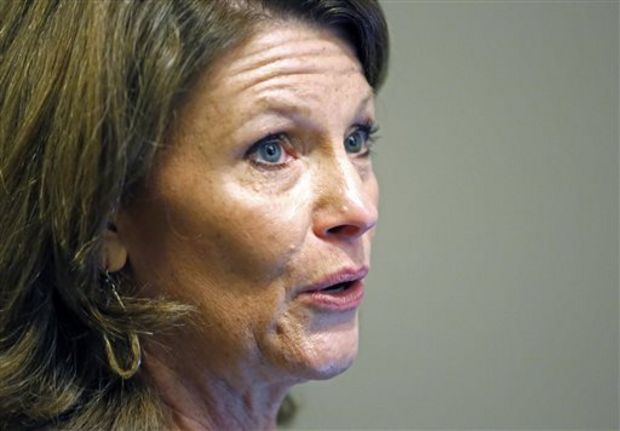

PEARL, Mississippi — Supporters of a constitutional amendment to guarantee “an adequate and efficient system of free public schools” in Mississippi loaded up the bed of a Chevrolet pickup with 16 boxes and drove to Secretary of State Delbert Hosemann’s office Monday.
Inside those boxes, they say, are the certified signatures of 121,691 votes, enough to put a referendum on the 2015 general election ballot. That’s above the threshold of more than 107,216 required. More than 21,443 signatures had to be collected from each of Mississippi’s five former congressional districts as they existed in 2000.
The referendum aims to prevent lawmakers from underfunding public schools, after a seven-year period in which the state has fallen $1.53 billion short of meeting the amount mandated by its school funding formula, called the Mississippi Adequate Education Program. During that time, most districts have increased local property taxes and cut teachers.
“Our schools can’t be challenged to do more with less and less,” said Sondra Odom, the president of the Pearl school board, speaking outside Pearl Upper Elementary. “I believe we can fully fund K-12 education without raising taxes or without pressuring budgets of other agencies. We have enough money to do it.”
If Hosemann agrees that the petition is in order, lawmakers in the 2015 legislative session could choose to propose an alternative version. If they do so, both the original language and the Legislature’s language would appear. Voters can choose one or the other, or reject both.
To gain adoption, a ballot initiative must receive not only a majority of the total votes cast for the issue, but also at least 40 percent of the total votes cast in the election.
Supporters with the Better Jobs, Better Schools group say that nearly 200,000 signatures were collected and that circuit clerks in Mississippi’s 82 counties certified two thirds of those.
Referendum supporters say their approach is a better way to solve school underfunding than a lawsuit spearheaded by former Gov. Ronnie Musgrove. That suit aims to recover past underfunding and prevent future shortfalls, while the referendum only aims at the future.
Gov. Phil Bryant and Lt. Gov. Tate Reeves, both Republicans, have expressed concerns. Bryant has said an additional mandate could increase uncertainty with the state budget. Reeves has said it could wrongly transfer spending power from the Legislature to judges, because people could sue to enforce the referendum.
Luther Munford, a lawyer who drafted the amendment, rejected those arguments, saying there’s nothing improper about constitutional limits on the Legislature’s authority. Claiborne Barksdale, whose brother Jim Barksdale has donated $100 million to improve reading in the state, said the details would still be up to the Legislature.
“This would not in any way preclude the Legislature from exercising its prerogative in appropriating funds,” Barksdale said.r



